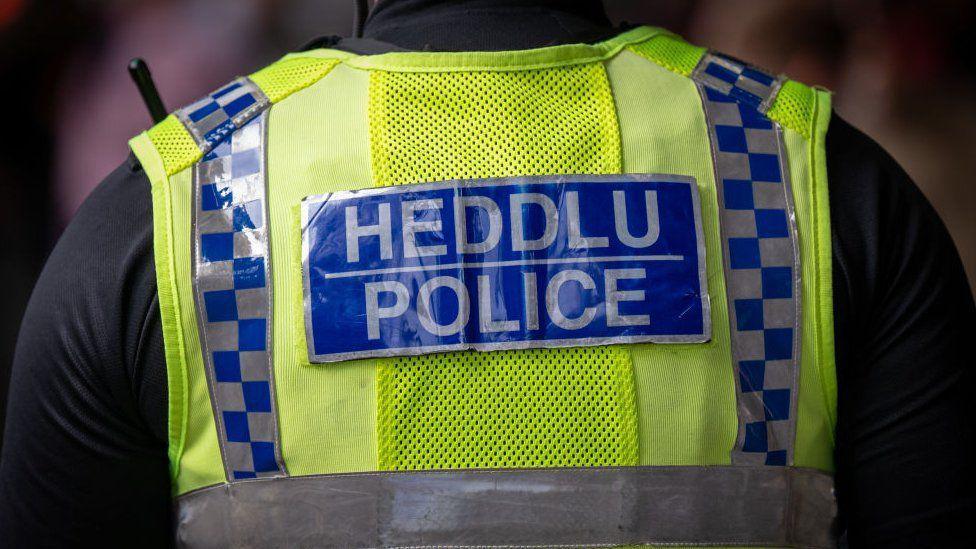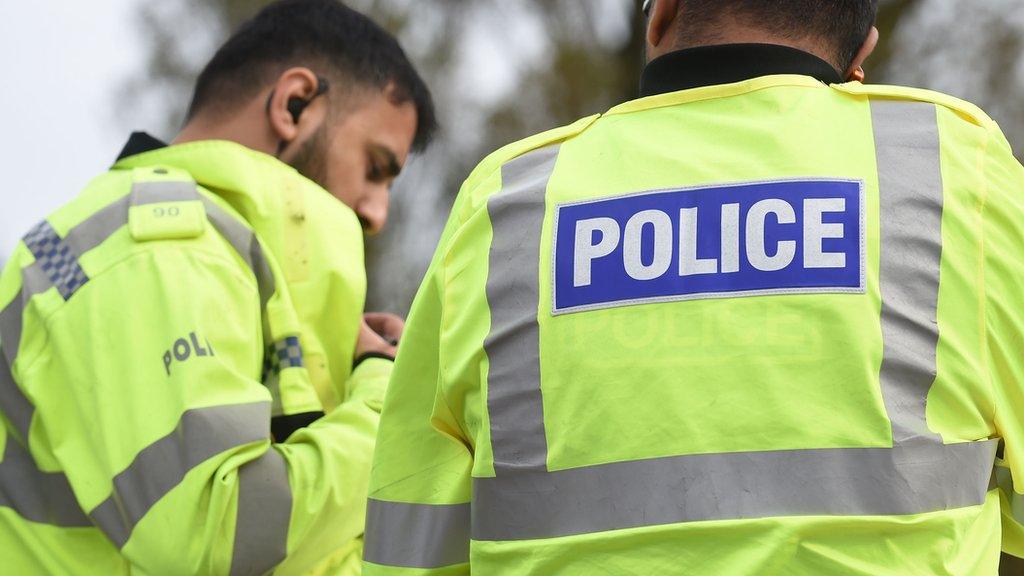Who is standing in Wales' police elections?

Police and crime commissioners oversee the police but are not responsible for their day-to-day operation
- Published
Candidates have been confirmed for Wales' Police and Crime Commissioner (PCC) elections, taking place on 2 May.
All four main parties in Wales - Labour, the Conservatives, Plaid Cymru and the Liberal Democrats - are standing.
It will be the first election in Wales where voters will need to show identification at polling stations.
No independents, or candidates from the Greens or Reform, are taking part.
Welsh Labour pick police candidates without vote
- Published5 December 2023
Power struggle over who should keep an eye on police
- Published13 May 2023
The PCC elections are the only ones taking place in Wales on 2 May - unlike in England, there are no council elections in the country on that date.
Two incumbent Labour party commissioners are stepping down this year - Alun Michael in South Wales and Jeff Cuthbert in Gwent.
Labour's Andy Dunbobbin in north Wales and Plaid's Dafydd Llywelyn in Dyfed Powys are defending their seats.
PCCs were set up in 2012 by the government of the then-prime minister David Cameron.
The elected officials are responsible for overseeing and holding to account police forces in England and Wales, and set the annual budget for the force area.
They are not responsible for day-to-day operational decisions that the police make.
In Wales there are four PCCs, one for each policing area - South Wales, Gwent, Dyfed Powys, and North Wales.
PCCs earn a salary and are among the best paid elected officials in Wales.
Currently in south Wales Alun Michael is paid £86,700.
Jeff Cuthbert, in Gwent, receives £73,302, while Andy Dunbobbin is paid £73,300.
Dafydd Llywelyn earns a salary of £68,200 a year.
Voters will need ID
This will be the first election in Wales where voters will need to present ID before they can vote.
Accepted forms of ID, external include a British passport, a driving licence, a 60 and over Welsh concessionary travel card, a disabled person's Welsh concessionary travel card, or an identity card bearing the proof of age standards scheme (a PASS card).
Voter ID applies in UK government-run elections, including general elections for Westminster.
ID is not required for Senedd elections, or Welsh council votes.
It is only the second time PCC elections have taken place in Wales with no other votes taking place at the same time.
The first was also the first ever PCC vote, in 2012, when there was a Wales-wide turnout of just 14.9%.
Who are the candidates?
In Gwent, the candidates are:
Donna Cushing, Plaid Cymru
Mike Hamilton, Welsh Liberal Democrats
Hannah Jarvis, Welsh Conservatives
Jane Mudd, Welsh Labour
In South Wales:
Sam Bennett, Welsh Liberal Democrats
George Carroll, Welsh Conservatives
Dennis Clarke, Plaid Cymru
Emma Wools, Welsh Labour
In Dyfed Powys:
Justin Griffiths, Welsh Liberal Democrats
Ian Harrison, Welsh Conservatives
Dafydd Llywelyn, Plaid Cymru
Philippa Ann Thompson, Labour
In North Wales:
Andy Dunbobbin, Welsh Labour
Ann Griffith, Plaid Cymru
Brian Jones, Welsh Conservatives
David Richard Marbrow, Welsh Liberal Democrats
- Published16 November 2012
- Published21 April 2016

- Published16 November 2012